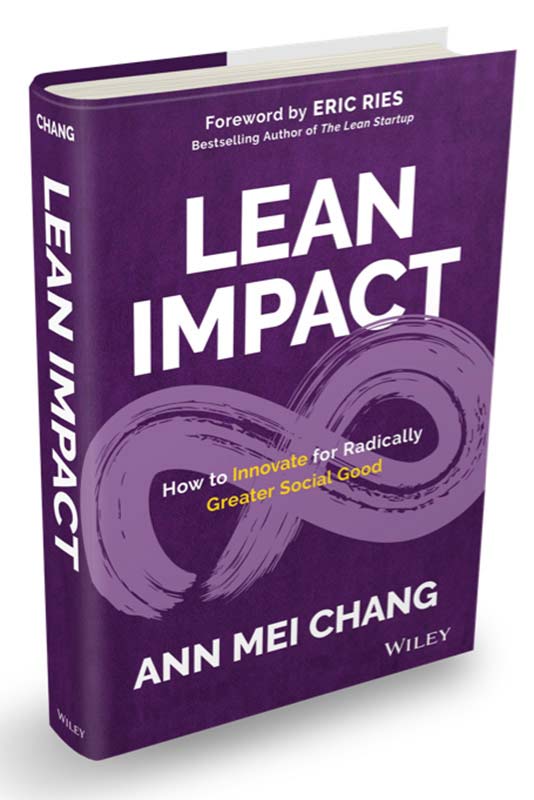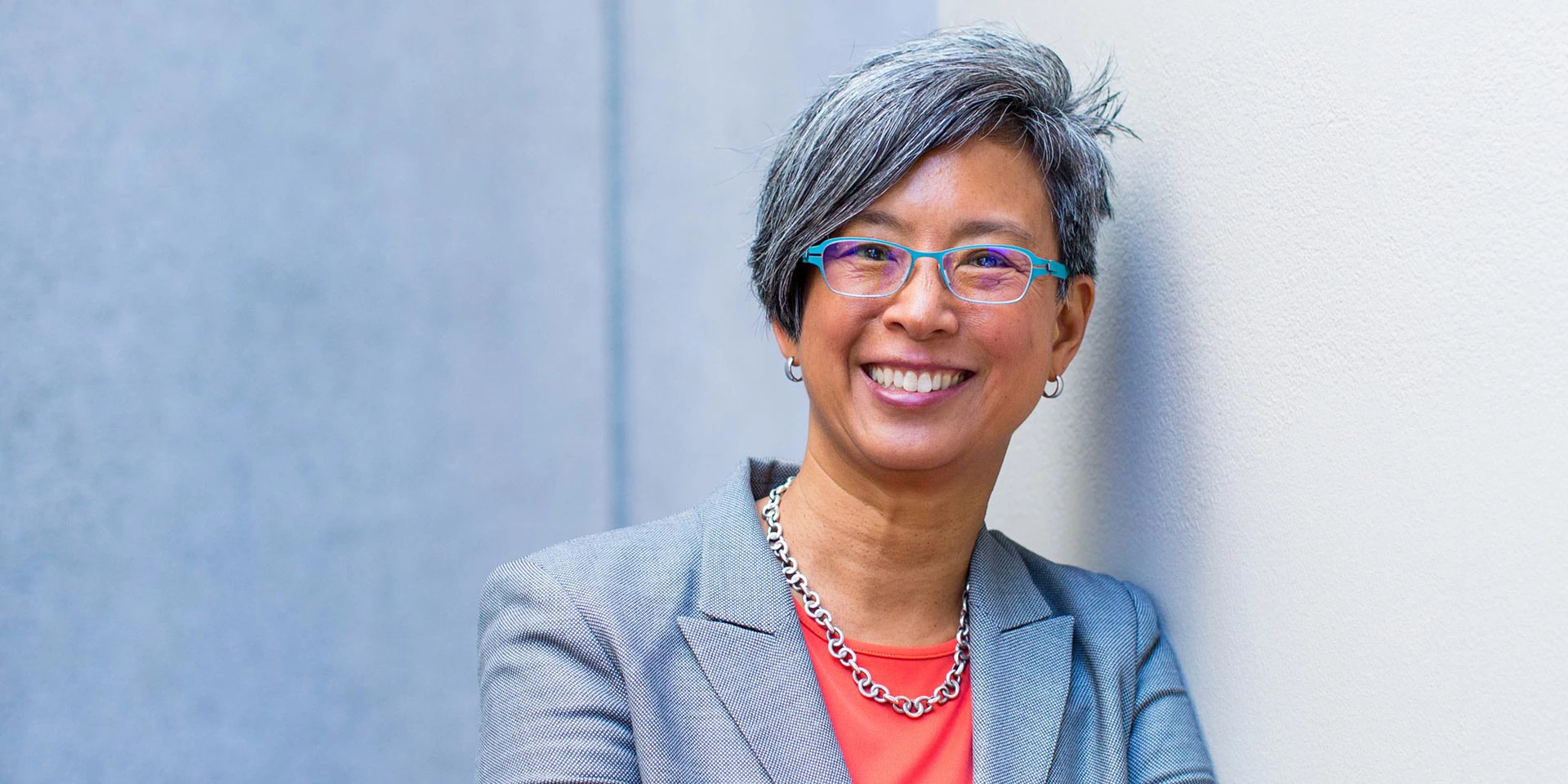By Alison Buckholtz
Ann Mei Chang spent 20 years at tech companies such as Google, Apple, and Intuit, as well as at a range of start-ups, before pivoting to the public sector. As Chief Innovation Officer at the United States Agency for International Development (USAID), Chang served as the first executive director of the U.S. Global Development Lab, adapting the best practices for innovation from Silicon Valley. Prior to that, she was chief innovation officer at Mercy Corps and the U.S. Department of State’s senior advisor for women and technology in the Secretary's Office of Global Women’s Issues. Chang’s book, Lean Impact: How to Innovate for Radically Greater Social Good, helps businesses achieve impact that can make a difference in society. She spoke to IFC Insights about funding models that can drive innovation, the importance of “failing small,” and how Africa’s tech start-up ecosystem can strengthen itself.
Q: How did your experience in Silicon Valley offer insights into best practices for innovation in the development sphere?
A: One of the fundamental ways Silicon Valley is structured for innovation is the way that funding works. Start-up companies usually receive rounds of funding in increasing tranches, with an angel round, then venture capital round A, round B, round C, and so forth. That allows investors in Silicon Valley to place a lot of small bets, test lots of potentially promising ideas that may be very risky, and then double down on the ones that work.
 When I was at USAID, we created a funding mechanism based on some of these lessons from venture capital called Development Innovation Ventures, or DIV. It allowed us to place those smaller bets. While USAID grants are often millions of dollars, our initial DIV grants started at $100,000. We encouraged risk taking, with the expectation that nine out of 10 of these early investments would fail. But the ones that succeed are considered for larger investments of about $1 million, then $5 million. This let us invest in the most promising, most evidence-based solutions. I think a tiered funding model like this is something that we should employ more to drive innovation in the development sector.
When I was at USAID, we created a funding mechanism based on some of these lessons from venture capital called Development Innovation Ventures, or DIV. It allowed us to place those smaller bets. While USAID grants are often millions of dollars, our initial DIV grants started at $100,000. We encouraged risk taking, with the expectation that nine out of 10 of these early investments would fail. But the ones that succeed are considered for larger investments of about $1 million, then $5 million. This let us invest in the most promising, most evidence-based solutions. I think a tiered funding model like this is something that we should employ more to drive innovation in the development sector.
Q: Is innovation harder to achieve in the global development sphere?
A: Yes, innovation is inherently harder when it comes to global development. Because impact can take much longer to fully realize, creating rapid feedback loops can be much harder than if your goal is something like optimizing e-commerce transactions. You often need to solve for both a business model and the impact model at the same time. And we're also frequently working with vulnerable populations, so have to be very careful about not doing harm when we're testing and iterating our solutions. Because of these and other challenges, innovation has been stifled. Funders can play an important role to unleash innovation by creating incentives for risk-taking and performance. That means casting a wider net, allowing for failure, and encouraging organizations to explicitly identify and test assumptions, run much lighter-weight experiments instead of full-scale pilots, and most importantly, make decisions based on data.
Q: You seem very comfortable with the idea of failure in this context. Is that just part of the process of innovation?
A: Yes, absolutely. Failure is a necessary part of innovation. But there's a distinction I draw between good failures, which are “failing small,” and bad failures, which are “failing big.” Unfortunately, we see not enough of the former and too much of the latter in global development. That is, we don't tend to place small bets in global development. It's easier for big funders to write big checks than to write lots of small checks. But when we make big investments before we've validated an approach, we can fail big and waste a lot more time and money than is necessary before we learn that something's not going to work. So the key to failure is to fail small. That’s where tiered funding comes in: when we take smaller steps and focus on validation, we can be more confident that the key drivers of success exist before we make bigger investments.
Q: How did you start to focus on the role of technology for development work?
A: Because I came from the tech sector a lot of people approached me asking, ‘Hey, can you help us build an app for this or website for that?’ But, in many cases, technology was simply not the best solution to the problem – particularly in low-resource contexts. What I discovered over time was that the bigger gap was in the approach to innovation, where we were often bringing the wrong tools to the table. We tend to plan these large, long-term programs for problems that are incredibly complex and not well understood. Rigid programs just don’t make sense where there is a high degree of uncertainty. Over time, I increasingly shifted my focus on how proven innovation principles could help us to solve long standing, entrenched challenges in global development.
Q: I understand you lived in Kenya for a few months about five years ago, when you worked for the State Department. What’s your view of the tech start-up ecosystem in Africa?
A: One thing that stands out to me from my research into technology start-ups in Africa was that tech companies were having a hard time really finding top-notch talent, due to limitations in the education system. When I looked at the top universities that were providing CS [computer science] degrees, I found that the allocation of slots for CS students had been fixed for many years, despite a huge growth in demand. Even though technology is such an important driver of our global economy, the education system in Africa is not producing enough students with relevant skills. Also, the curriculum is very static and can lag far behind the fast changing nature of technology. I found incredible talent and entrepreneurial spirit in Kenya and across Africa, but oftentimes, systems are not preparing them with the skills and the tools that they need to be successful and thrive.
Q: How should tech entrepreneurs in Africa mentor the next generation?
A: Role models are essential. It’s so much easier to draw people into the sector when they see people like them being successful with a start-up. Mentorship is important because in many African countries, parents encourage their kids to be conservative with their career and go into stable jobs like a large company or government. Startups are seen to be risky and unstable, and many people are ready to gamble with their careers. And so, seeing people running successful start-ups can be so important to show the potential upsides – the excitement, the financial rewards, and the difference these products and services can make in our society.
Published in September 2020
